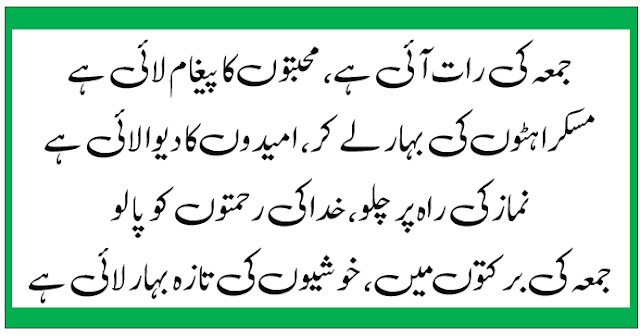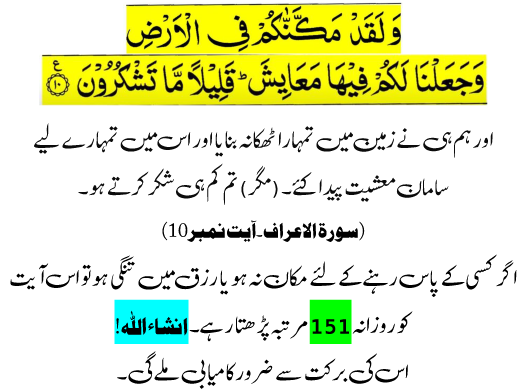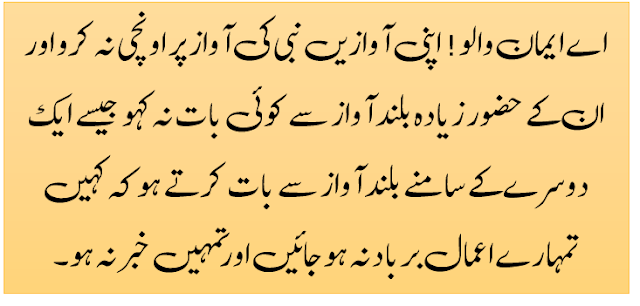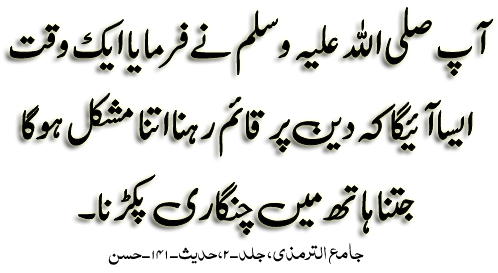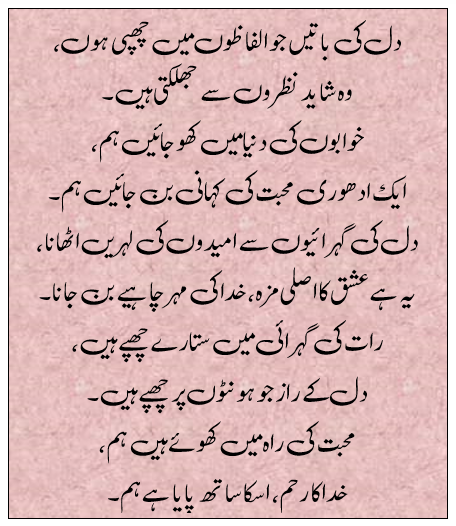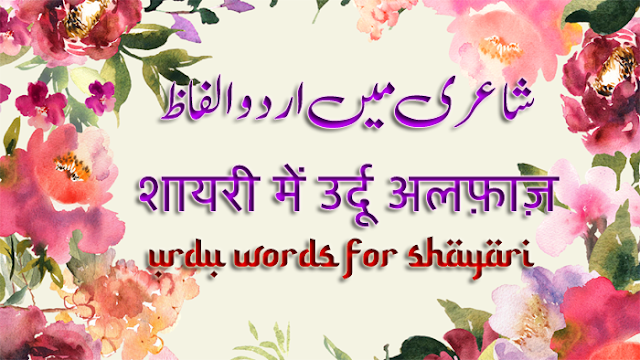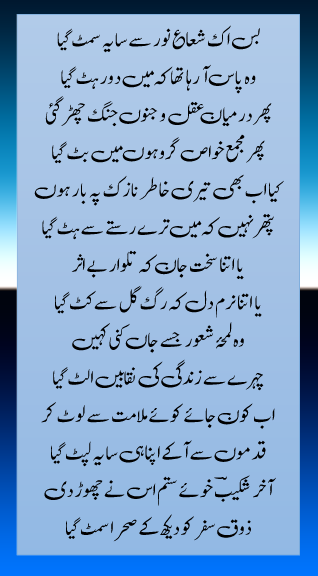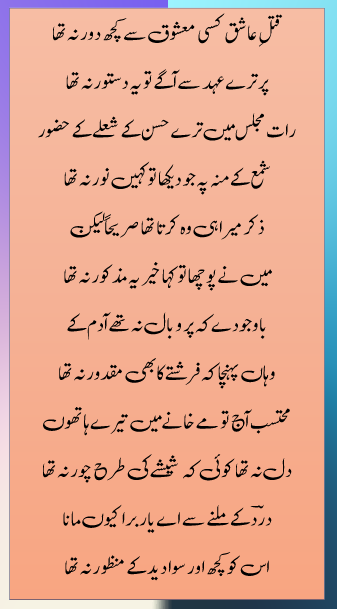जुम्मे की रात आई है, प्यार का संदेश लाई है
मुस्कुराहटों की बहार लेकर, उम्मीदों का दीप लाई है
नमाज़ की राह पर चलो, खुदा की रहमतें पा लो
जुम्मे की बरकतों में, खुशियों की ताज़ा बहार लाई है
यह शायरी जुम्मे के महत्व का जश्न मनाती है, आमंत्रित करती है कि ईमानदार नमाज़ी इस पवित्र दिन पर नमाज़ पढ़ें और खुदा की रहमत को प्राप्त करें।
The night of Jumu'ah has arrived, bringing the message of love,
With smiles and the light of hope, it has come.
Walk on the path of prayer, attain Allah's blessings,
In the blessings of Jumu'ah, a fresh spring of joy has come.
This Shayari celebrates the significance of Jumu'ah, encouraging believers to embrace prayers and seek Allah's blessings on this blessed day.





